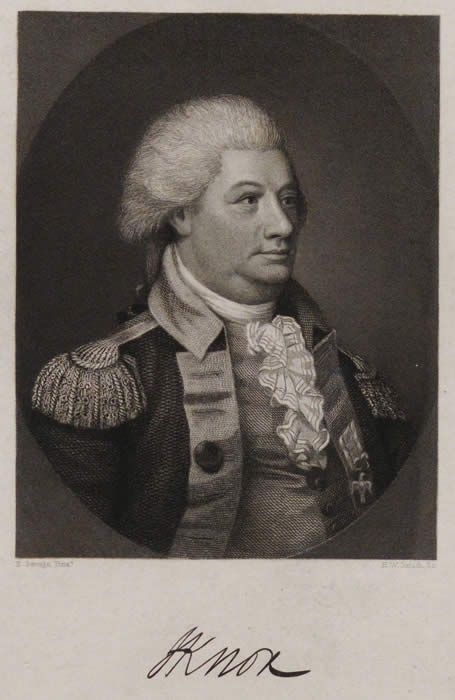The Henry Knox Archive
INTRODUCTION
The more than 10,500 letters and documents comprising the Knox Archive offer first-hand testimony, from the very highest levels, of the iconic events and major issues which had an impact on the birth and early development of the United States. The scope and depth of this archive, coupled with the significance of the individuals and historical events represented, make it one of the most important of its kind outside of U.S. government archives.
As head of Washington’s artillery during the Revolutionary War, Boston-born Henry Knox (1750-1806) rose to the rank of major general in the Continental Army, and went on to serve as the nation’s first Secretary of War under the U.S. constitution. The content of his archive covers the Revolutionary War, the impact of the Declaration of Independence, Shays’s Rebellion, the creation and ratification of the Constitution, Washington’s election to the presidency, the creation of the new federal government, the Whiskey Rebellion, Indian wars, foreign-policy crises, Western settlement, and the birth of party politics. His correspondents range from founders such as George Washington, John Adams, Thomas Jefferson, and Alexander Hamilton, to American military leaders, officers and soldiers alike, to prominent merchants and financiers, artists, writers, and inventors. The collection is rich in documents by and about founding-era women, and includes rare examples written or signed by African-American soldiers and Native American leaders.
Above and beyond these categories, there are innumerable sub-themes woven through the collection that enrich our knowledge of the individuals, both celebrated and unknown, who contributed to the creation of the United States of America.
BIOGRAPHY OF HENRY KNOX (1750-1806)
Henry Knox’s childhood was scarred by the financial collapse of the family’s mercantile and shipbuilding business in 1759, and his father’s subsequent abandonment of the family. At the age of nine, Knox left school and, taking a job with a local bookseller, became his family’s sole breadwinner. In his spare time, he studied military science and trained with the local artillery company. In 1770, Knox was an eyewitness to the Boston Massacre, and testified at the trial of the British officers involved. That same year, he opened his own bookshop, which soon became a meeting place for patriots, including many of his fellow Sons of Liberty. In the summer of 1774, as animosity between colonials and British officials continued to escalate, Knox married Lucy Flucker, the daughter of a prominent Boston Tory. Theirs was a true love match. When Henry escaped occupied Boston to join patriot forces following the April 19, 1775 Battle of Lexington and Concord, Lucy accompanied him.



